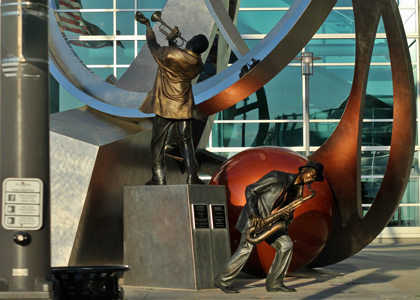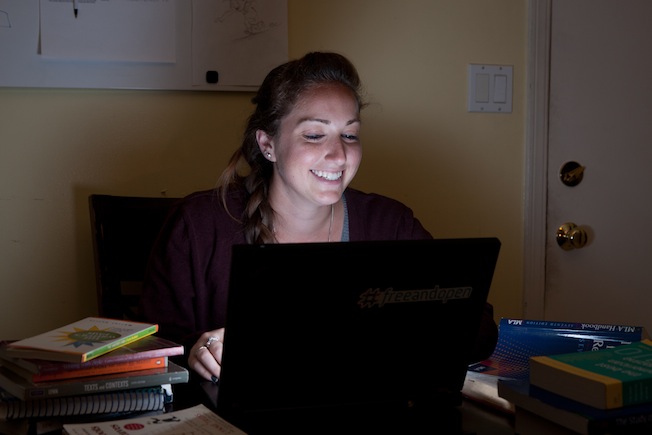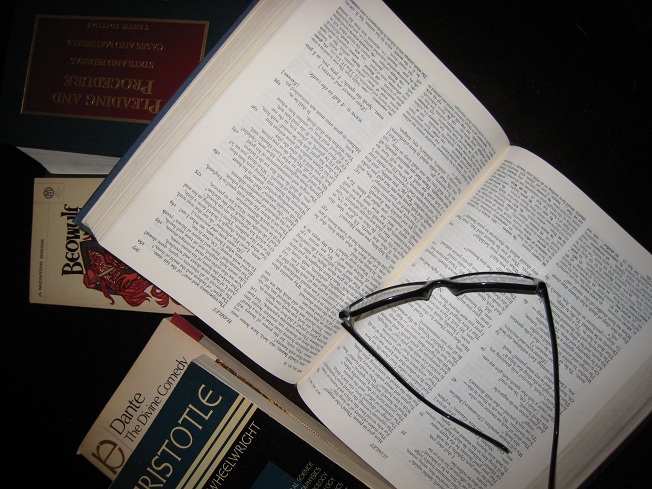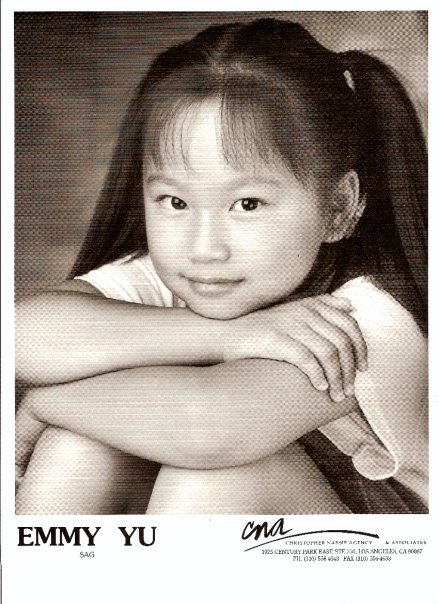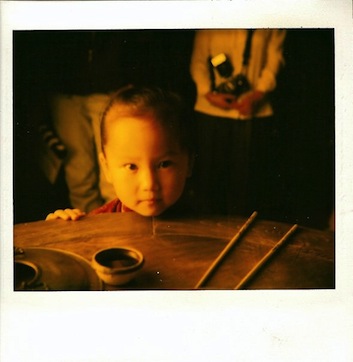I never thought I’d miss desk chairs.
I was fortunate enough to be one of those people who started working immediately after college. A yearlong internship panned out—the television company with which I’d been interning took on a $45 million project during my last semester, and rather than train new coordinators, they just started paying me once I graduated. I started at $500 a week, which at the time felt like legit riches, and then got bumped up to $600 a few months later.
Although I was only supposed to contract for about 5 months, I ended up staying as an employee for more than a year, during which time my incredible boss/mentor rallied tirelessly to get me put on salary, but to no avail. I tried to move laterally in the company, toward one of the creative jobs that were more along the lines of my degree, but nepotism reared its fugly head and I was passed over for any new positions.
So, I found myself with no chances to move within the company and no full-time prospects elsewhere. I did cry, once—in the comfort of my own breakfast burrito—and no one noticed except the waiter, who (bless him) wordlessly handed me a mimosa. After a few sips, I pulled myself together, considered my skills and connections, and shifted my mindset to freelancing. Fortunately, thanks to the proactive work of my now-former boss, I spent almost no time searching for jobs. She put me in contact with a few company connections, all of whom I reached out to immediately and pushed to set meetings up with. During these meetings, if there were even an inkling of a suggestion of a task mentioned, I said yes. Always yes. I agreed to everything from working a private school charity function for a producer to managing the marketing for an upcoming indie film. I can’t stress enough how important it is to say yes. If the task is basic enough that they’re asking a relative stranger to do it, and it doesn’t involve a Hazmat suit, it’s probably something you can figure out how to do. I consider myself a lifetime double student at the universities of Google and Your Local Public Library.
So I got a backup laptop battery, switched out my unlimited MetroCard for a pay-per-ride and, before I could put on my comfy slippers, I was juggling five different freelance gigs. And I do mean different. I spent my days alternating between cutting Flavor of Love highlights (yes, the VH-1 masterpiece), to pulling stills and sound bites for a TV show’s digital board game, to frantically researching Photoshop layer-masking for a website’s design after having promised I had the adequate skills to do it.
The Money
Let’s talk about the fun part of freelancing: getting paid!!! Negotiating a pay rate is not as tricky or as terrifying as you’d expect. Before that process begins for you, ask someone in a similar field about the rates they charge, both when they started and now. When you go back to the employer, don’t be afraid to aim higher than you think you should. If you’ve gotten this far in setting up a freelance position, they’re unlikely to slam the (e-)door in your face. They’ll either say yes, or they’ll counter with a lower rate. From there, feel free to negotiate away; I found that agreeing on a rate within a couple of emails saved both of us from any potential resentment.
Here’s another thing about quoting a rate for your work. Come on—lean in for this one—I’m going to type in italics to invoke whispering: If they’re hiring you to do some extra work, eight times out of ten they don’t know how to do it themselves. They probably don’t even know what the typical rate is. Don’t take advantage of people, obviously, but don’t be afraid to upcharge based on your own experience (whatever that may be) and to make it worth your while. Like I said, I promise that an employer won’t turn down your services, then tell all his/her friends not to hire you, and then hack into your OKCupid account to declare you a huge, pompous, money-grubbing asshole if you quote a rate that’s too high.
What’s less fun than negotiating a rate is chasing after employers for money. It’s not necessarily that you didn’t do a great job, or that the employer is a bad person, or that the project is necessarily a total go-nowhere scam running out of the back of a souvenir shop. (I repeatedly stress not taking this stuff personally, because it’s very easy to let happen, especially if you’re working alone most of the time and away from the regular, conversational feedback of office life. A year of freelancing left me more sensitive to criticism than Joffrey Lannister-Baratheon.) It is simply not your clients’ top priority to give you their money, regardless of the job you did. So don’t be afraid to bring it up kindly in an email or make a phone call, regularly, to make sure it happens. No one is going to worry themselves as much about your payment as you are. Be your own #1 get-money-get-paid advocate.
The Routine
Throughout my time freelancing, it was hard to regulate some semblance of a routine. I would work late until I fell asleep with my computer in my lap, and then I would wake up the next morning, grab my computer from my bedside, and start working again. The sheer number of deadlines made self-motivation easy; the trickier task was turning my brain off from “work mode.” Imagine getting to your office at 8 am and leaving after midnight every day. Even if you’re only committed to eight hours, you’ll probably find yourself working ahead just because you’re in that environment. When I was working from home, there was no differentiator, especially when “home” was a teeny tenement apartment with no common spaces.
But there were numerous advantages! I could work in my pajamas (although to avoid the inevitable self-disgrace, I usually didn’t), I could do my laundry and grocery shopping in the middle of the day when there were no lines. I worked my gym schedule around the TV Guide for the channels I could watch on the treadmill. My conversational skills didn’t exactly flourish, but my work and home lives were the most efficient they’d ever been.
The Location
At one point, I decided to take the phrase “working remotely” to heart. With some extra cash from one particularly lucrative job, I moved to an apartment two blocks from the Mediterranean Sea for a few months while I continued to cut, edit, and write content for various clients. Wake up, work over breakfast, bring lunch and write on the beach before it got too hot, come home, work through dinner, go out with new roommates. And, of course, go on the occasional adventure. I realize that not every freelance job can be done from across the globe, but if the stars align accordingly for you, then get your ass out there.
Hanging Up The Slippers
Before I knew it, a year of freelancing had passed. By then, I was working part-time in the office of a client, a social media/entertainment startup, who now needed me on-hand for a few hours a week. I was also bartending a couple times a week, more for the social interaction than anything else. I felt both exhausted and also, strangely, unaccomplished; unless you’re looking at freelance gigs cumulatively, it’s easy to feel like you didn’t contribute greatly to any one project.
Not long after that, the part-time office job asked me to come onboard full-time. After weighing the decision, I decided to hang up my slippers and come back to office life. I would miss the freedom of scheduling my day, and I would miss indulging the weird idiosyncrasies I had developed from being alone most of the time for 15 months (like talking to myself excessively and eating certain foods with a knife only). Ultimately, the most alluring prospects were the regular, decent salary, a stake of equity in the company, the comfort of a desk chair (so much more ergonomic than the headboard of my bed), and the chance to interact all day with humans who weren’t appearing on a daytime talk show.
Am I glad I made the switch back to a one-job-only, 9-to-5 life? Yes. Do I miss the flexibility? Yes, every time I get a low-airfare alert for some exotic city, or try and elbow my way to the only rust-stain-free dryer at the laundromat at 7:30 in the evening. On the plus side, I have more regular in-person human interaction; I’m finally starting to get out of the habit of what I call ‘speaking in email,’ ending all spoken office conversations with “Best, Alyssa.” And I don’t have to chase anyone for a paycheck—it lands nicely into my checking account twice a month.
Is It For You?
I don’t know that I would recommend freelancing as a full-time job to everyone. I think it’s worth trying, especially if any of the above perks seem attractive to you. And oftentimes, they can lead to a steadier position, as in my case.
If you’re thinking about jumping on the freelance train, it’s worth having some money saved up, in case the jobs dry up or in case an employer is dragging their feet to give you your first paycheck. There’s always going to be some lingering awareness (and there should be, if you’re responsible about your bank account) that there will be periods of low income in addition to times where you’re flush with cash. Retail copywriting, for example, is heavily sought after from October to December, but unsurprisingly, work dries up after the holidays. So as tempting as it is after a well-paid gig to head to Serendipity 3 for a celebratory Frrozen Haute Chocolate, it might be worth saving some of that cheddar for a rainy day. If managing your money with some Scroogery isn’t something you think you’re capable of, then maybe freelancing isn’t for you.
Of course, starting to freelance isn’t always an all-or-nothing decision. You might be working one full-time position when someone asks you to take on a project. Then that may lead to other projects, some concurrently, until you have to consider whether it’s enough money and consistent work to quit your day job for. If so, and if you don’t LOVE your day job, then I say get out of there! Be free! Spread your self-sufficient wings! And when that day comes when you’re called back down to Earth for another permanent position, you have to make the decision for yourself: Just how much do you love eating oatmeal with a knife?
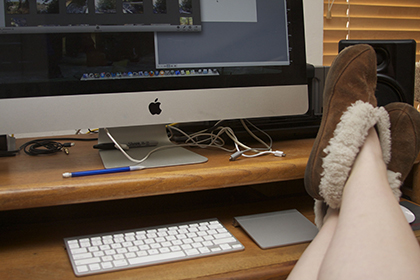
Photo by Meaghan Morrison

